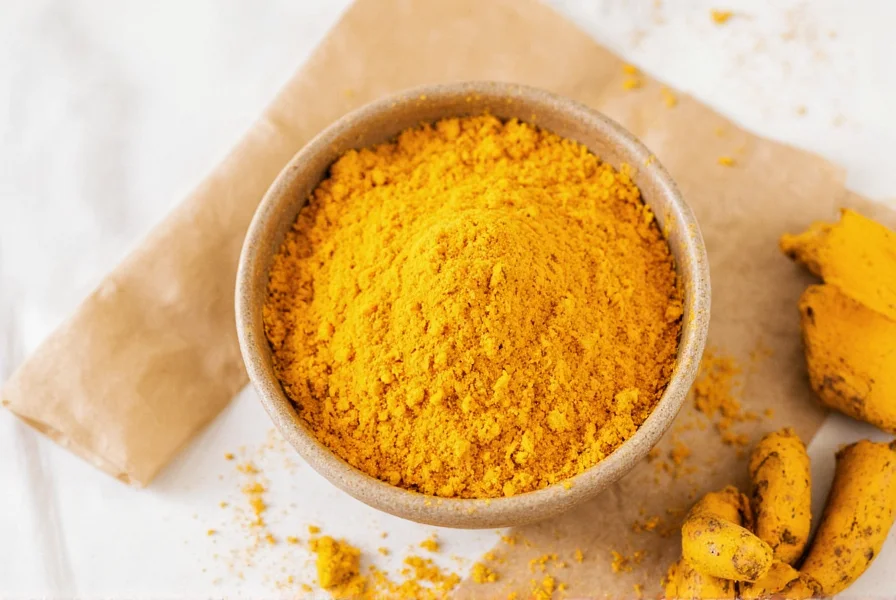Curcumin, the primary bioactive compound in turmeric, has generated significant interest in weight management research. While preliminary studies show promise, understanding the actual impact requires examining both the potential benefits and significant limitations of current research.
The Science Behind Turmeric and Weight Management
Multiple mechanisms suggest how curcumin might influence body weight. Research indicates curcumin may help regulate adipogenesis (fat cell formation), reduce inflammation associated with obesity, and improve insulin sensitivity. A 2019 meta-analysis published in Phytotherapy Research examined 11 clinical trials involving 673 participants and found that curcumin supplementation resulted in statistically significant but modest reductions in body weight, BMI, and waist circumference compared to placebo groups.

What the Research Actually Shows
When evaluating does turmeric curcumin help with weight loss, the evidence reveals several important patterns:
| Study Type | Average Weight Change | Duration | Key Limitations |
|---|---|---|---|
| Human Clinical Trials (combined) | 1.5-3.5 lbs (0.7-1.6 kg) | 8-12 weeks | Small sample sizes, often combined with diet/exercise |
| Animal Studies | More significant reductions | Varies | Poor translation to human physiology |
| Long-term Human Studies | Minimal sustained effect | 6+ months | Limited research available |
These findings suggest that while scientific evidence on turmeric for weight management exists, the effects are considerably smaller than many supplement marketers claim. Most successful studies combined curcumin with lifestyle changes, making it difficult to isolate turmeric's specific contribution.
Practical Considerations for Weight Management
When considering how much turmeric should I take for weight loss, research typically uses standardized curcumin extracts providing 500-2,000 mg of curcumin daily, often with piperine (from black pepper) to enhance absorption. However, whole turmeric contains only about 3% curcumin by weight, meaning you would need to consume large, impractical amounts of the spice itself to achieve these doses.
Safety considerations matter when exploring can turmeric boost fat burning. While turmeric is generally safe as a culinary spice, high-dose supplements may interact with blood thinners, diabetes medications, and cause gastrointestinal issues in some people. The FDA considers turmeric GRAS (Generally Recognized As Safe) as a food ingredient, but not as a therapeutic agent for weight loss.
Realistic Expectations for Weight Management
Understanding is turmeric effective for reducing belly fat requires acknowledging that no single food or supplement causes significant weight loss. The most effective approach combines evidence-based strategies:
- Calorie-controlled, nutrient-dense eating patterns
- Regular physical activity (both cardio and strength training)
- Adequate sleep and stress management
- Behavioral changes addressing eating habits
Turmeric might serve as a complementary element within this framework, but turmeric weight loss studies results consistently show it cannot replace these foundational approaches. A 2020 review in Nutrients concluded that while curcumin shows potential as an adjunct therapy, current evidence doesn't support its use as a primary weight loss intervention.

Conclusion: Setting the Record Straight
The question does turmeric help you lose weight deserves a nuanced answer. Current research suggests turmeric's active compound curcumin may provide modest support for weight management when combined with other healthy behaviors, but it is not a magic solution. The effects observed in studies are generally small (typically 1-3 pounds over 8-12 weeks), and results vary significantly between individuals.
For those considering turmeric supplementation, consult with a healthcare provider first, especially if you have underlying health conditions or take medications. Remember that sustainable weight management comes from comprehensive lifestyle changes, not single supplements. While adding turmeric to your diet is safe and may offer other health benefits, don't expect dramatic weight loss results from this golden spice alone.
Does turmeric actually burn fat?
Turmeric doesn't directly "burn fat" but may support metabolic processes that influence fat storage and inflammation. Research shows curcumin might help regulate adipogenesis (fat cell formation) and improve insulin sensitivity, which could indirectly support weight management when combined with diet and exercise. However, these effects are modest and shouldn't be overstated.
How long does it take to see weight loss results from turmeric?
Most clinical studies showing modest weight effects used turmeric supplements for 8-12 weeks. However, results vary significantly between individuals, and many studies combined turmeric with dietary changes and exercise. You shouldn't expect noticeable weight loss from turmeric alone, as effects are generally minimal (1-3 pounds) even with consistent supplementation.
Can I lose belly fat by drinking turmeric water?
Drinking turmeric water alone won't specifically target belly fat. While turmeric may offer some metabolic benefits, spot reduction of fat isn't possible. Any weight loss from turmeric water would likely come from replacing higher-calorie beverages, not from the turmeric itself. For reducing abdominal fat, focus on overall calorie balance, exercise, and stress management rather than relying on turmeric water.
What's the best way to take turmeric for potential weight benefits?
For potential weight management benefits, research typically uses standardized curcumin extracts providing 500-2,000 mg of curcumin daily, often combined with piperine (from black pepper) to enhance absorption. Culinary turmeric contains only about 3% curcumin, so significant weight effects from cooking with turmeric alone are unlikely. Always consult with a healthcare provider before starting any supplement regimen, especially if you have health conditions or take medications.
Are there any risks to using turmeric for weight loss?
Turmeric is generally safe as a culinary spice, but high-dose supplements may cause gastrointestinal issues, interact with blood thinners, and affect diabetes medications. Some turmeric supplements contain fillers or inconsistent curcumin levels. The primary risk is relying solely on turmeric for weight loss while neglecting proven methods like diet modification and exercise. Always discuss supplements with your healthcare provider before use.










 浙公网安备
33010002000092号
浙公网安备
33010002000092号 浙B2-20120091-4
浙B2-20120091-4